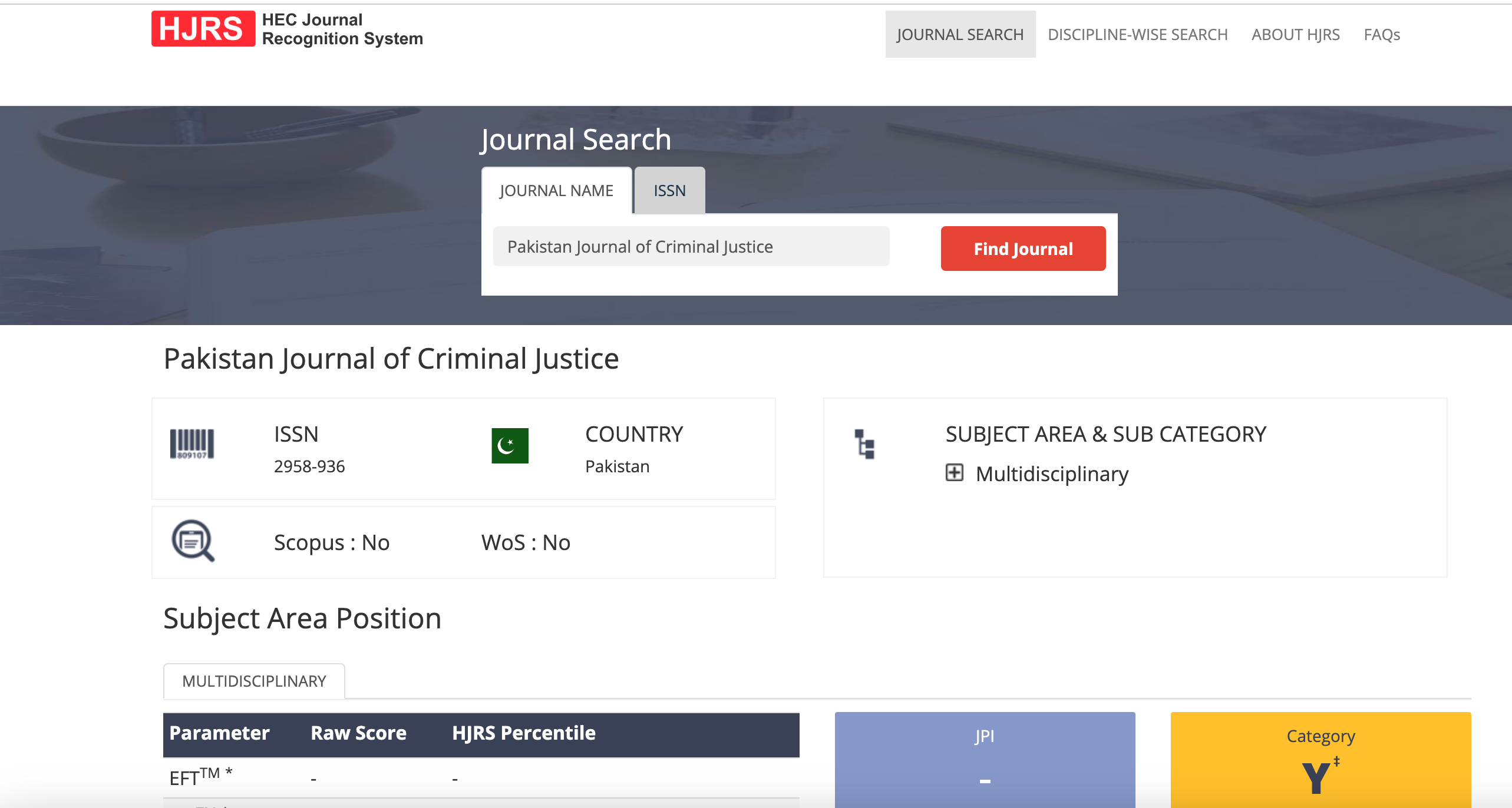A Truth in Context: Exploring the Role of Circumstantial Evidence in a Criminal Trial
DOI:
https://doi.org/10.62585/pjcj.v3i1.15Keywords:
Proof, criminal trial, circumstantial evidence, appreciation of evidenceAbstract
The Law of Evidence encompasses a structured framework of regulations employed to discern and ascertain factual information in the adjudication of disputes and the establishment of legal rights and obligations. It encompasses all forms of substantiation introduced during a trial, stratifying as either direct or indirect, with the latter encompassing circumstantial evidence. The utilization of circumstantial evidence, in conjunction with oral testimony, assumes a pivotal role in the adjudication of criminal cases by bolstering the credibility of witnesses and facilitating equitable judicial determinations. This paper delves into the role of circumstantial evidence within the context of legal proceedings, contending that while direct evidence may carry more inherent persuasiveness for jurors, circumstantial evidence also serves as a vital instrument in ascertaining the truth within the specific circumstances of a case. The research seeks to explore the substantive importance of circumstantial evidence in the realm of criminal trials. Employing a comprehensive analysis of pertinent case law and scholarly literature, this study endeavors to contribute to an enhanced comprehension of how judicial bodies can effectively evaluate circumstantial evidence within the overall spectrum of evidentiary appreciation.
Downloads
Published
How to Cite
Issue
Section
License
Copyright (c) 2023 The Pakistan Journal of Criminal Justice

This work is licensed under a Creative Commons Attribution-NonCommercial 4.0 International License.





